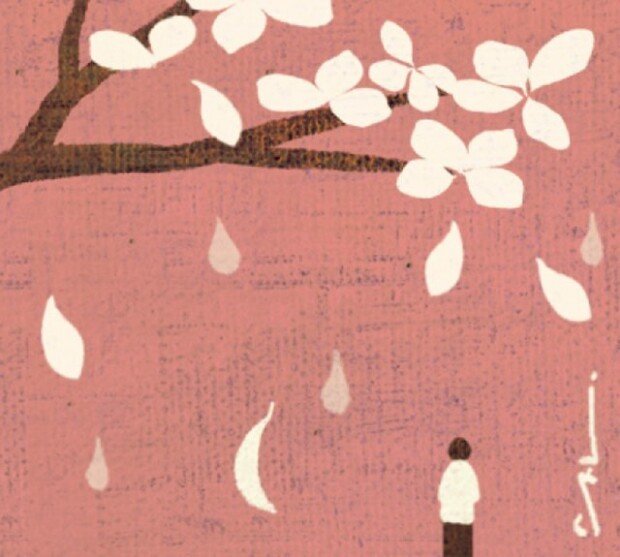New Spring 9
New Spring 9
Posted May. 14, 2022 07:32,
Updated May. 14, 2022 07:32

If you ask, ‘is this all?’ I would say, ‘yes, this is all.’ Although there are other works entitled “New Spring,” they are all different works. Work No. 9 is the final piece of the series, and it is composed of four lines, reminding of a haiku for such short form of poetry. The poem is easy to transcribe, which is why it is written in calligraphy, and many elderly women who learn Korean also love to write out the poem. Admiring the poem’s conciseness and succinctness, one may be surprised to find out that it is written by poet Kim Chi-ha.
Kim Chi-ha advocated democracy through his poems, such as “The Yellow Earth,” “Road to Seoul,” and “With a Burning Thirst.” He wrote his feelings of compassion in “Love Thy Neighbor” and championed the value of life. Kim’s fearless words and action seem to be incompatible with the poem “New Spring 9.”
However, is such incongruity really that awkward? Although the poet is known to have become a proponent for the value of life in his declining years, Kim treasured life very much since the early years of his career. The poet was enraged by the authoritarian regime under which a person tied down another person, where a person recklessly beat and killed his fellow citizen. Underneath his anger were love and life. “Because I like a green pine, I even like cherry blossoms,” the poet wrote. Love and life are the focus of this poem. Readers might wonder at first, asking if this is really Kim Chi-ha’s poem. Then they realize that this is in fact written by Kim.
The poet passed away in the days bordering on spring and summer, yet this work of the poet remains. A poet passes on what remains even after it is gone.
Headline News
- N. Korea launches cyberattacks on S. Korea's defense companies
- Major university hospital professors consider a day off each week
- Italy suffers from fiscal deficits from ‘Super Bonus’ scheme
- Inter Milan secures 20th Serie A title, surpassing AC Milan
- Ruling and opposition prioritize spending amid tax revenue shortfalls







